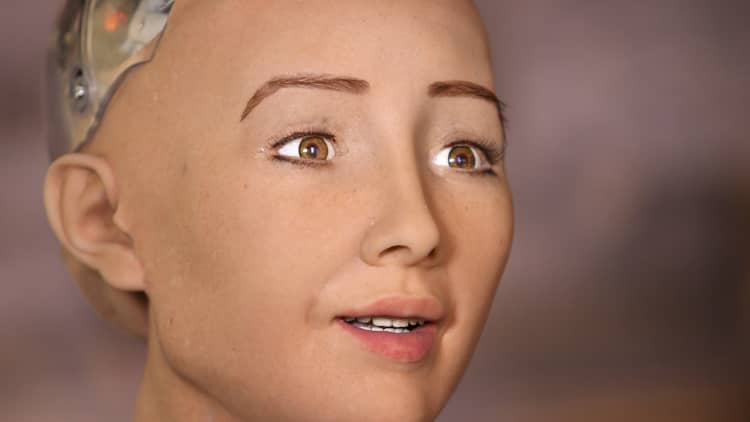Alphabet's sale of two robotics companies this week should serve as a warning to all the other robots whose budgets depend on the approval of CFO Ruth Porat: From now on, merely becoming a YouTube video star isn't enough to stay on the payroll.
The sales to Softbank, the Japanese conglomerate owned by billionaire investor Masayoshi Son, show that the fiscal discipline Porat has brought to Google's parent company extends even to its most high-profile technologies.
Her focus on the bottom line has reportedly earned Porat the nickname 'Ruth Vader' at the company, after the Star Wars arch-villain of the same name.
While Porat's cost-cutting regime may put fear into the hearts of engineers dreaming of the distant future, it's been music to the ears of investors focused on this year's market returns.
One of the companies sold this week, Boston Dynamics, has built a group of robots that can run up stairs, leap over obstacles and bounce back from a swift kick as good as any human, as shown by their massively-popular YouTube videos.
Clips that showcase different members of the cutting-edge metal crew, who have hip names like WildCat, Spot and Atlas, have garnered more than 76 million views on the Alphabet-owned video service.

Another robot, called Cheetah, can sprint slightly faster than Usain Bolt, the Jamaican Olympic champion known as the world's fastest human.
As interesting as its robots may be to online viewers, though, any market for them is still between nascent and speculative.
Alphabet's robot division was put together four years ago in a flurry of acquisitions by Andy Rubin, the creator of the Android mobile operating system that today generates a large chunk of Google's ad sales.
Yet Rubin left Google a year later, leaving behind more than a half-dozen companies located in multiple countries, reportedly bereft of leadership or a coherent vision.
Enter Porat, a former executive with the giant investment bank Morgan Stanley, to clean up the financial mess.
Less than a year after she arrived, Boston Dynamics was reportedly on the chopping block.
Porat said at the Code technology conference last week that she and other top Alphabet executives meet weekly to evaluate the company's more speculative businesses, which it calls Other Bets.
Less than a week later, Boston Dynamics and another company called Schaft joined a long and growing list of companies that have been sold or scaled back since Porat arrived.
Her tenure has been a boon to Alphabet shareholders, with its stock up more than 70 percent since she joined, far outpacing the gain of the broader market for tech shares.
In the first quarter, Alphabet's net income surged 29 percent, to $5.4 billion.
If the engineers of Boston Dynamics wanted to keep getting funded out of those profits in the Porat era, they perhaps should have taught Cheetah or Atlas how to develop a go-to-market strategy.
Watch: Porat discusses Google's mission



